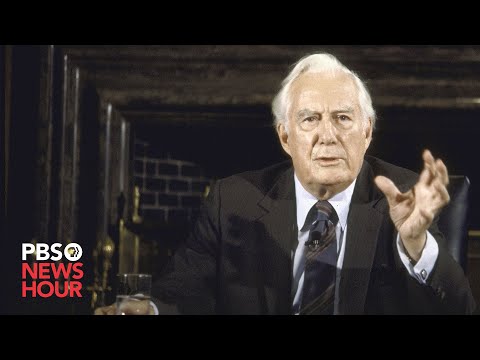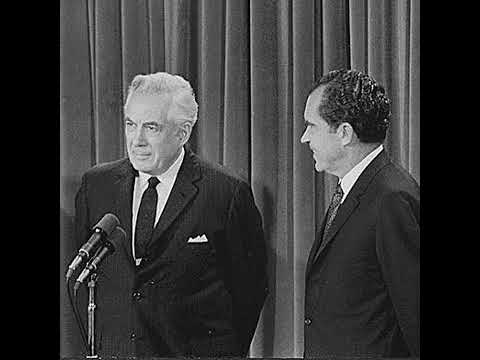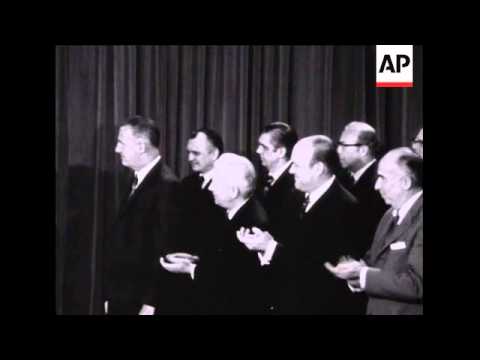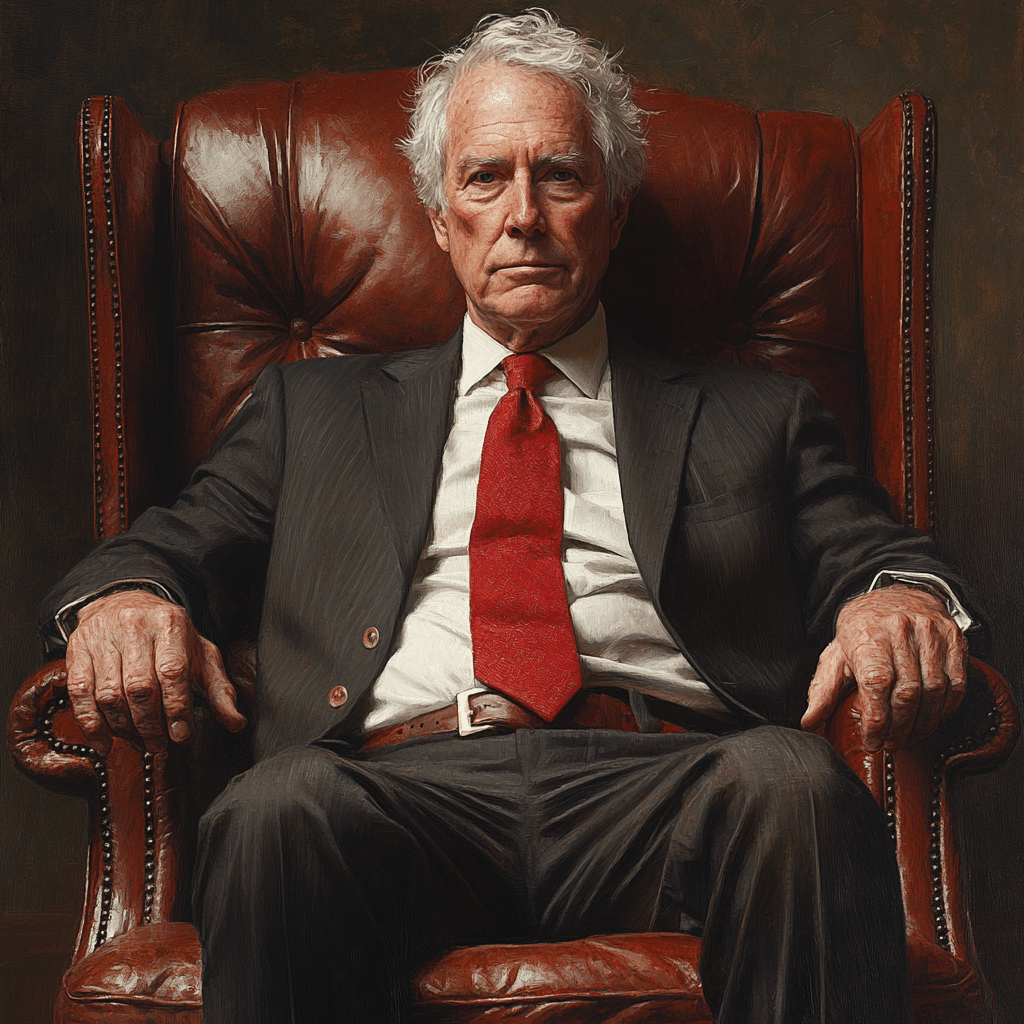
Warren Burger A Conservative Force On The Supreme Court
Warren Burger, Chief Justice of the United States Supreme Court from 1969 to 1986, left a lasting imprint on American jurisprudence. A pivotal figure in shaping modern judicial thought, he navigated the court through a transformative era marked by social upheaval and change, becoming a conservative force that redefined the court’s role. Burger’s leadership marked a significant shift not only in the court’s approach to fundamental issues but also in how the American legal system would respond to pressing societal concerns, including reproductive rights, civil rights, and freedom of speech.
How Warren Burger Shaped Modern Judicial Thought
Warren Burger’s ascent to the Supreme Court represented a reaction against the liberal precedents set by his predecessor, Earl Warren. He wasn’t the strongest intellectual force on the court, but his influence lay in how he balanced conservative values with a willingness to tackle controversial issues. Burger’s court forged rulings that acknowledged an evolving society while still adhering to a constitutionally conservative framework. During his tenure, the court addressed critical social issues that set the stage for future jurisprudence, helping define a new judicial landscape.
His approach appealed to a nation grappling with profound conflicts and changes, from the civil rights movement to the women’s rights movement. Burger’s decisions often upheld a clear delineation of personal freedoms while encroaching on the state’s regulatory authority. As a result, he sparked debates that still resonate in today’s socio-political climate, illustrating the complex relationship between law and social issues.
This balancing act framed his legacy, as he walked the line between ensuring legal stability and accounting for a society influx with progressive ideas. In doing so, Burger became a pivotal figure, whose judicial philosophy laid essential groundwork for ongoing discussions in the law.
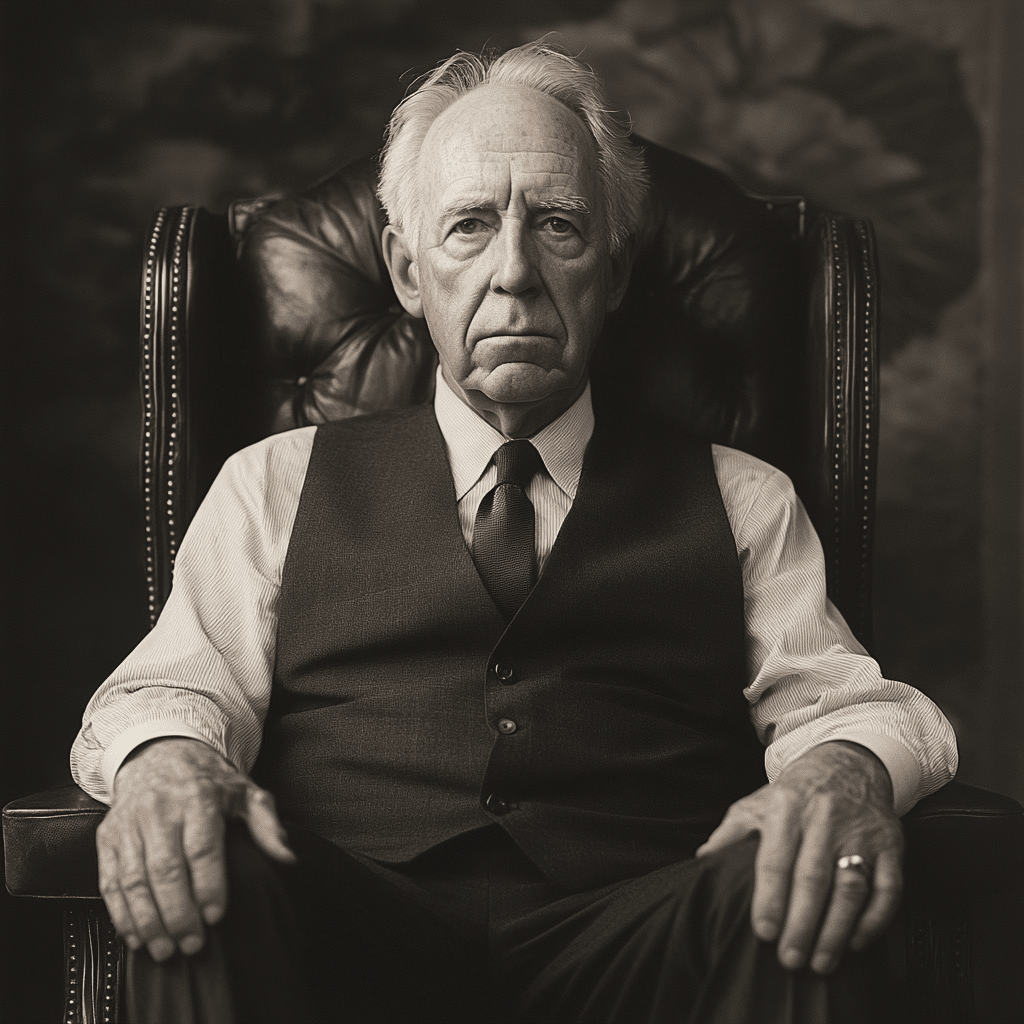
Top 7 Landmark Cases that Define Warren Burger’s Impact
During his time on the Supreme Court, Burger presided over several landmark cases that encapsulated his conservative influence. Here are seven key decisions that reflect the judicial philosophy of Warren Burger:
1. Roe v. Wade (1973)
Warren Burger oversaw this landmark decision that legalized abortion nationwide. While many regard it as a liberal victory, Burger’s ruling underscored the right to privacy and instigated complex debates about states’ rights and personal freedoms. The decision’s ramifications reverberate through today’s discussions on reproductive rights, framing how the courts interpret women’s autonomy.
2. United States v. Nixon (1974)
In a monumental case, Warren Burger ruled against President Richard Nixon, affirming the principle that no one is above the law. This ruling established crucial precedents for presidential accountability and the relationship between executive power and judicial oversight, which remain relevant as political figures navigate the landscape of governance.
3. Regents of the University of California v. Bakke (1978)
This case addressed affirmative action policies, with Burger supporting limited affirmative action in higher education. His opinion shaped the debate over racial quotas and laid the groundwork for future rulings, reflecting the complexities of race and institutional equality in America.
4. Lemon v. Kurtzman (1971)
In setting forth the “Lemon Test,” this ruling provided a standard for addressing violations of the Establishment Clause. The case remains significant in discussions about the separation of church and state, highlighting how Burger’s court sought to balance religious freedoms with governmental authority.
5. New Jersey v. T.L.O. (1985)
This case examined student rights in public educational settings. Burger ruled that schools could search students based on reasonable suspicion rather than probable cause, impacting student privacy rights and redefining boundaries in school discipline.
6. Frontiero v. Richardson (1973)
In this case against gender discrimination, Burger’s ruling marked a progressive move toward recognizing gender equality in military benefits. This decision laid a critical foundation for advancing women’s rights, reflecting Burger’s ongoing negotiation between conservative values and expanding civil rights.
7. Washington v. Seattle School District No. 1 (1982)
Here, Burger addressed the intricate issues of race and educational funding, ruling against voters who sought to deny funding for specific school districts based on racial dynamics. The case underscored the court’s role in promoting desegregation efforts, aligning judicial decisions with civil rights progress.
Personalities of the Burger Court: Influential Justices and Their Views
The decisions made during Burger’s tenure were influenced by the diverse personalities of the justices on the court. Figures like William Rehnquist, Lewis Powell, and Potter Stewart brought varying viewpoints that interacted with Burger’s conservativism. Their collective decisions sculpted American civil liberties, as each justice contributed unique perspectives.
William Rehnquist
Rehnquist, later appointed as Chief Justice, leaned toward a stricter interpretation of the Constitution. His alignment with Burger’s conservative values often pushed towards states’ rights and law enforcement, further influencing contemporary understandings of the law.
Lewis Powell
Often seen as a moderate voice, Powell played a stabilizing role among his more conservative colleagues. His approach encouraged collaboration on essential cases, particularly those connected to race and educational policy, fostering an environment that examined the intersections of justice and equality.
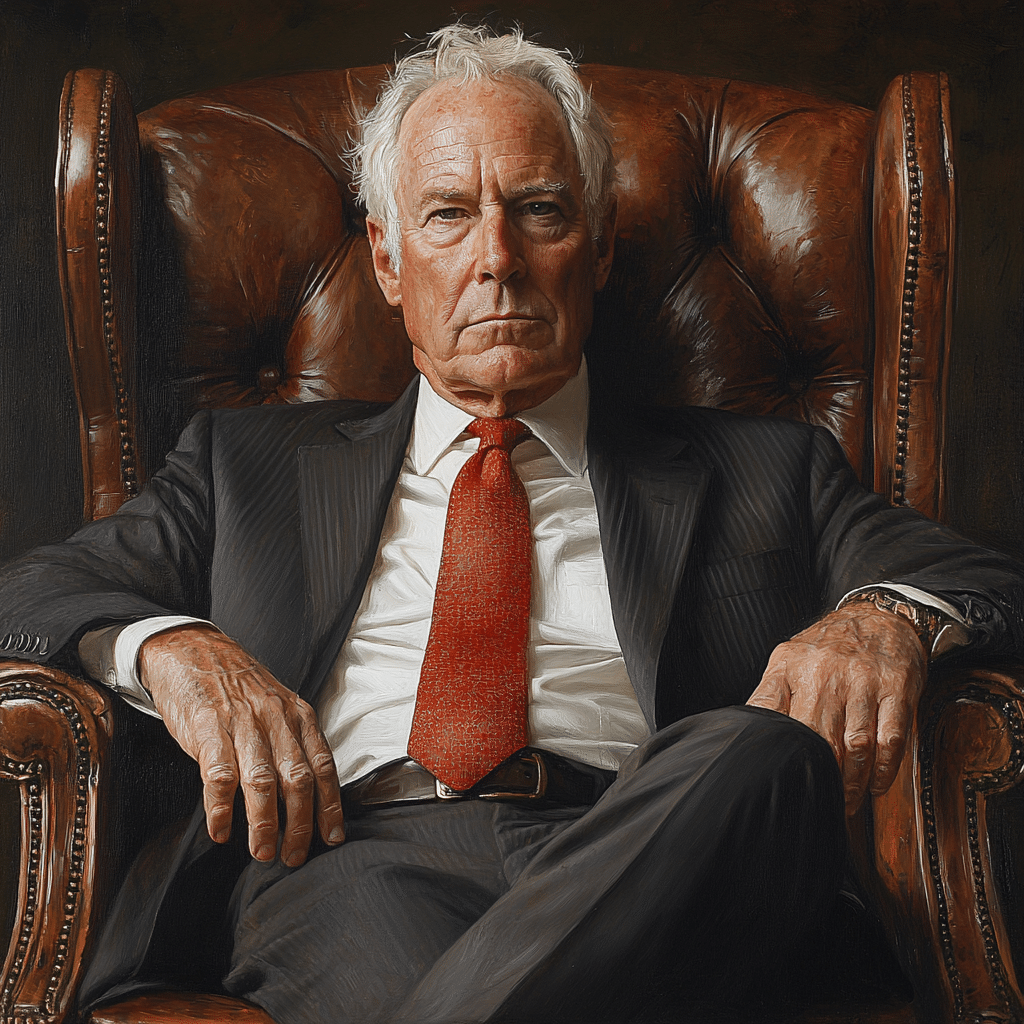
External Social Forces: The Context of the Burger Court
The political and social climate during the era of the Burger Court significantly shaped its decisions. The context included the Vietnam War protests, rising feminism, and ongoing civil rights movements. Public sentiment during this time created a backdrop that necessitated careful judicial responses.
The Jackson Storm of Political Change
This transitional phase from the tumultuous 1960s to the 1980s saw a decisive shift in public attitudes. Burger’s judicial conservatism often acted as a counterbalance to the liberal activism of his predecessors, ultimately shaping how the court engaged with public sentiments regarding rights, freedoms, and governance.
Comparing Burger’s Influence: Then and Now
Warren Burger’s contributions teaching critical insights into how the Supreme Court has evolved. Today’s court, with justices like Amy Coney Barrett and Neil Gorsuch, reflects similar conservative philosophies in a vastly different social landscape. Just as Burger’s leadership navigated rights and executive power, modern justices are tackling contentious issues like reproductive rights, healthcare, and gun control.
Parallel to Contemporary Figures
The ongoing socio-political debates showcase how foundations laid by Warren Burger remain relevant. Legal strategists, advocates, and policymakers actively consider Burger’s decisions in addressing today’s pressing societal concerns, continuing the dialogue about constitutional interpretation and rights.
Cultural Reflections: Burger in Film and Media
Warren Burger’s legacy isn’t confined just to the courts; it echoes through popular culture as well. Films and documentaries have explored the significant court decisions of his era, showcasing how issues like Roe v. Wade remain critical topics today. Creators like David Moscow often dive into these histories, emphasizing their relevance in contemporary discussions.
The Lasting Impact of Warren Burger on American Society
The ramifications of Warren Burger’s decisions ripple through American society today. His court laid a foundation for contemporary legislative goals and public sentiments. Just as movements such as Frank Speech and the Johnson Family Vacation leverage media to shift public conversations, Burger’s rulings continue to inform modern advocacy efforts.
Final Thoughts on the Influence of Warren Burger
Warren Burger’s journey as Chief Justice illustrates the profound impact of judicial philosophy in American democracy. While his conservative stances incited controversy, they also spurred essential dialogues about rights, governance, and the judiciary’s role in shaping policy. Analyzing Burger’s legacy offers valuable insights into today’s debates over civil liberties, executive authority, and the judiciary’s responsibilities. As current figures grapple with pressing issues, the foundational principles laid down by Warren Burger remain a vital part of the ongoing conversation in legal thought and societal change.
In reflecting on the conservative force that was Warren Burger, we recognize that his legacy will continue to challenge and inspire new generations of legal thinkers and practitioners.
Warren Burger: A Conservative Force on the Supreme Court
A Legacy of Decisions
Warren Burger served as the 15th Chief Justice of the U.S. Supreme Court from 1969 to 1986, and his influence on American jurisprudence remains significant. Did you know that his tenure was marked by a commitment to conservative values? Many of his decisions were pivotal in shaping the legal landscape, often emphasizing law and order. Despite this staunch approach, his court did also engage with pressing social issues, showcasing a blend of traditional and progressive ideals. For context, Burger’s rulings on cases like Roe v. Wade illustrate the push and pull of social justice and conservative principles like a balancing act. Speaking of balancing acts, the notion of what it means to define gross can stretch far beyond legal definitions; it often seeps into our everyday discourse.
The Personal Side
On a lighter note, Warren Burger wasn’t just about the law; he had a colorful personality. It’s said he loved to indulge in the arts, much like a young Jack black dabbling in comedy. This zest for life even extended to personal interactions; he was known for his warmth and good humor, contrary to the cut-and-dry image often portrayed of Supreme Court justices. His relationships often echoed those of close-knit communities, similar to the ties you might find in Clover baltimore, where neighbors come together. He fostered an atmosphere in the court that encouraged frank discussions among justices, injecting a bit of humanity into their legal deliberations.
Trivia Tidbits
Beneath the surface of Warren Burger’s judicial impact lies a treasure trove of trivia. For instance, he had a notable friendship with Carolyn Lawrence, a figure known for her advocacy on social issues. Their connection, though not widely publicized, sparked engaging dialogues on legal philosophy. Additionally, Burger’s leadership was often seen as the cornerstone Of recovery for a court that had its ups and downs during the 70s and 80s, as societal values were shifting. It’s interesting to think that just as Burger sought clarity in the law, many seek support through resources like feel free near me initiatives, aiming for personal recovery.
Ultimately, Warren Burger’s legacy intertwines with so many aspects of American culture, as evidenced by the many faces of justice, from the meticulous groundwork laid for future rulings to how his justices interacted like a cast in a sitcom, reminiscent of characters like Amy Santiago from “Brooklyn Nine-Nine. He’s a prime example of how one individual can leave an indelible mark on both legal frameworks and the broader societal narrative.
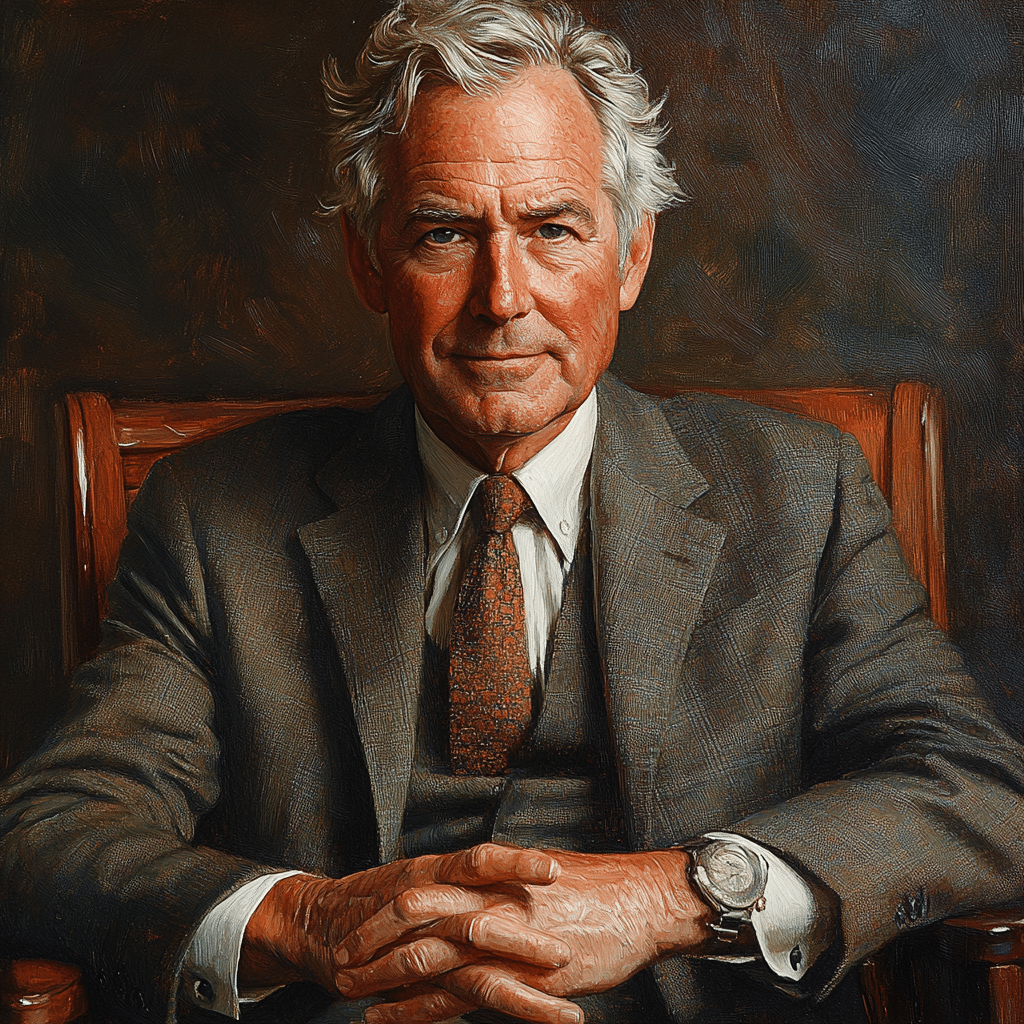
Was Warren Burger liberal or conservative?
Warren Burger was generally considered a conservative constructionist. He took a more traditional view of the law compared to his predecessor, Earl Warren, who led a more liberal court.
What was Warren E. Burger known for?
Warren E. Burger was known for improving the administration of the federal judiciary and for being one of the longest-serving Chief Justices in U.S. history. He focused on making the courts more efficient rather than being an outspoken intellectual force.
Which president appointed Warren Burger?
President Richard Nixon appointed Warren Burger to succeed Earl Warren as Chief Justice in 1969, and he received little opposition during his Senate confirmation.
Why was Earl Warren so famous?
Earl Warren is famous for his role as Chief Justice during the landmark cases that addressed civil rights and the unconstitutional nature of racial segregation in public schools, among other progressive decisions.
Why was Burger an ineffective Chief Justice?
Burger was sometimes viewed as ineffective because he didn’t strongly assert his leadership or intellectual influence on the Court and often prioritized administrative improvements instead of decisive legal rulings.
What political party is Warren?
Warren Burger was a member of the Republican Party, reflecting the party’s values during his time on the Court.
Why did Warren Burger retire?
Warren Burger retired in 1986 after serving for nearly 17 years, at a time when he felt it was appropriate for new leadership to take over.
What was the most liberal Supreme Court?
The Warren Court, under Earl Warren, is often considered the most liberal Supreme Court because of its numerous decisions that expanded civil rights and civil liberties.
What did Warren E. Burger support?
Warren E. Burger supported a range of judicial reforms focused on efficiency and management rather than social issues, aligning with his conservative judicial philosophy.
Where is Warren Burger buried?
Warren Burger is buried at the Arlington National Cemetery in Virginia, which is well-known for its honor and remembrance of significant figures in U.S. history.
Why did Eisenhower appoint Warren?
President Eisenhower appointed Earl Warren in 1953, believing he would help advance the civil rights agenda and bring a moderate balance to the Court.
Who was appointed by Reagan to succeed Warren Burger as Chief Justice?
President Ronald Reagan appointed William Rehnquist to succeed Warren Burger as Chief Justice in 1986, continuing the trend of conservative leadership.
Was Warren Burger a Republican?
Warren Burger was indeed a Republican, representing the party’s judicial perspectives during his time on the Supreme Court.
Who was the first woman to sit on the Supreme Court?
Sandra Day O’Connor was the first woman to serve on the Supreme Court, appointed by President Reagan in 1981, breaking the gender barrier in the high court.
Was Earl Warren a Democrat or Republican?
Earl Warren was a member of the Republican Party, though he is often seen as a moderate who championed civil rights, making his tenure notable for its push toward liberal values.





